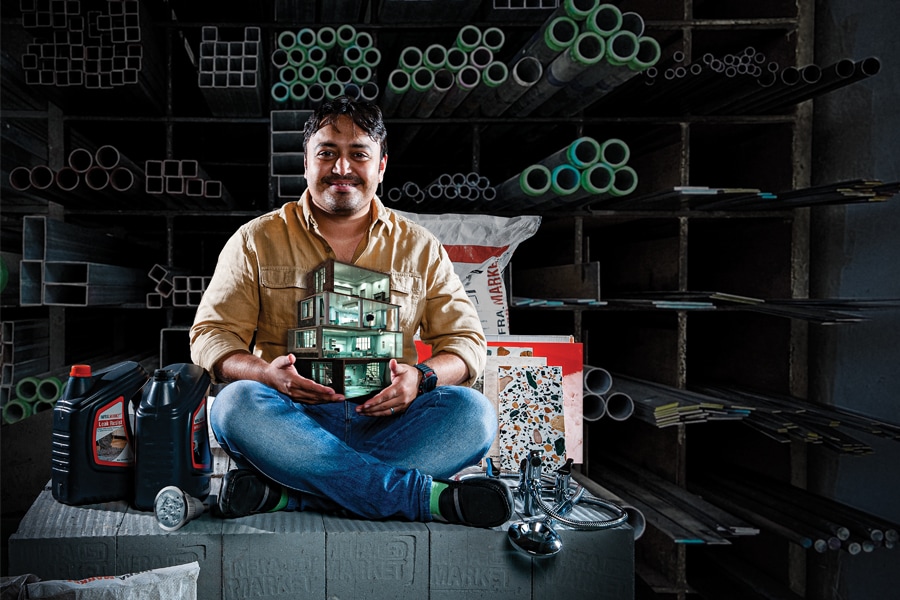
Analysts, Ugly Duckling & Mr India: A peek into the rise and rise of Infra.Market
When Aaditya Sharda and Souvik Sengupta wanted to scale their bootstrapped venture in early 2019, they couldn't find takers. Finally, when venture capital came, the friends managed to save 2.5 percent stake. The Infra.Market story, though, did not get diluted
 Aaditya Sharda, co-founder, Infra.Market
Aaditya Sharda, co-founder, Infra.Market
For three years, Aaditya Sharda and Souvik Sengupta slogged hard to make a mark. In fact, they did more than that to ensure that Infra.Market—an online B2B construction material procurement platform mainly dealing with aggregate and concrete—makes some noise.
Look at the numbers. While revenue for FY17 stood at Rs 12.54 crore, the next fiscal it more than doubled to Rs 28.5 crore, and closed FY19 with Rs 63.21 crore. The icing on the cake, however, was not sales. The three-year-old bootstrapped venture posted profits right from the first year: Rs 28 lakh, Rs 53 lakh and 1.74 crore, respectively.
The friends thought they were building a solid business—call it hard core business, if you will, as it was profitable—and wanted to scale the business by raising venture capital.
Apart from concrete business metrics, what also gave them an edge was the fact that a slew of funded startups in construction material had shuttered 2018 onward. “There was a steady stream of failures,” recalls Sharda. By March 2019, investors had lost their appetite for any ‘brick and mortar’ business. The friends, though, were confident. “We were an ugly duckling,” recalls Sharda. Infra.Market, he adds, had ticked all the boxes to get noticed.
Investors were also eager to spot a venture with early signs of success. There was only one problem, though. Sharda, Sengupta and Infra.Market had turned out to be Mr India. “We were invisible,” recounts Sharda. Almost all the analysts across VC funds approached by the duo failed to see any promise in the budding story.





